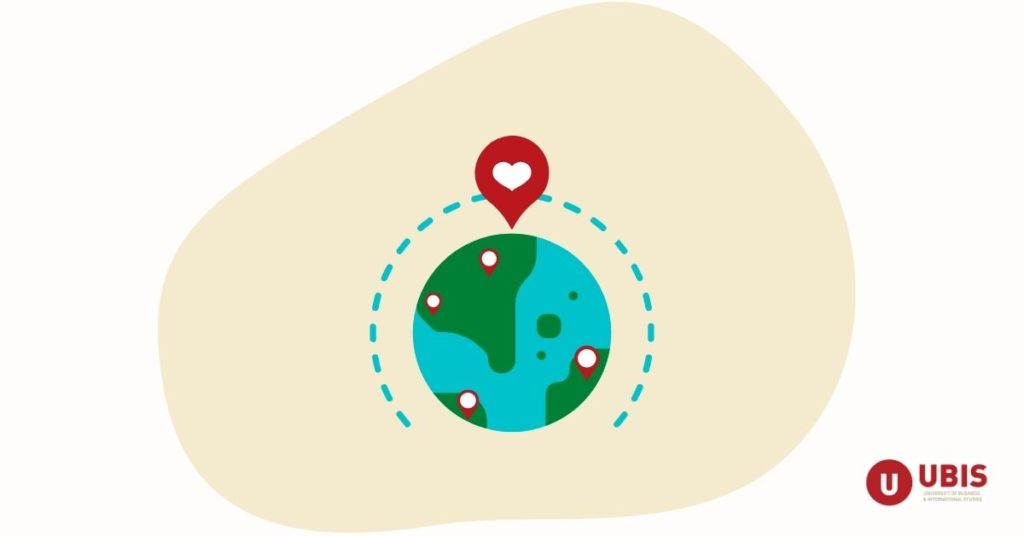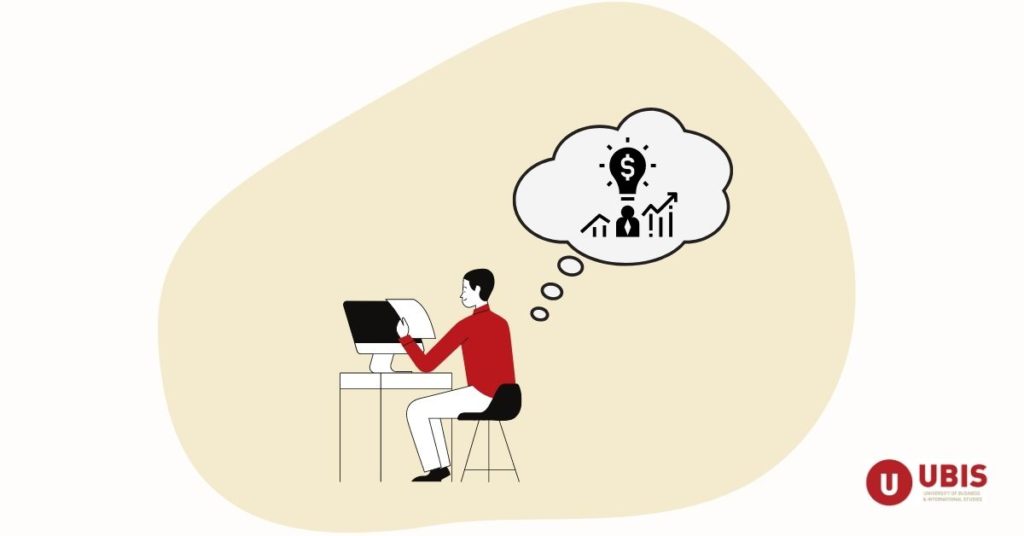We are now well-versed in the immediate impact that the Covid-19 pandemic has had on the higher education sector. From the rapid adoption of blended and distance learning models, to the changing skillset sought by employers, the current climate has accelerated the pace at which the business world is evolving. But what do the events of 2020 mean for the future of business education?
For those students who are in the midst of their business studies, the world might look a little different to what they had anticipated. Despite this uncertainty, there are key trends we can look at that might help us determine what the future of business education will look like. So what has changed and what positives can students take from this most seismic of years?
Technology and democratising future access to education
The increasing prevalence of technology in everyday learning and teaching was happening before this year, it’s true. Most universities are no strangers to using technology in some way to support their students and staff. However, the sudden enforced shift away from a campus-based student experience has hugely accelerated the integration of technology across all areas of student life.
With more students having greater digital fluency than ever before, we have seen a rise in digitally-delivered courses being the preferred choice for many. Provided that they can access a suitable workspace and a reliable internet connection, distance learning has many advantages for business students. A blend of synchronous and asynchronous learning, course materials that are accessible on-demand, the ability to connect with peers and prospective employers from all over the world – these are just some of the advantages that technology gives students.
If the future of higher education is digital, that lends itself to changing the type of business courses on offer too. Distance learning courses are often shorter in duration and sometimes more affordable than a traditional degree course. This flexible approach from universities in turn opens up who feels able to access these world-class educational opportunities. Many courses have reported a widening in the age range of undergraduate and graduate applicants. They may also be more accessible to those already working or with family responsibilities.
At UBIS, we offer our students flexible learning options to create a bespoke degree offer that is right for you and your future career goals. Find out more about our courses here.
A globalised future
The events of this year may have made our daily lives seem physically smaller. On the face of it, the impact of socially distanced living might have been hugely detrimental to the growth of global business. While economies have stalled and businesses have been forced to adapt their operations in the wake of the pandemic, in other ways our increasing reliance on technology has made international collaboration seem like a more feasible prospect for students.
Classes delivered via video call can host students (and staff) from around the globe, instantly opening up learners to an international network of peers. The nature of business too is changing, with CEOs and business leaders seemingly more accessible than ever before. The once-formal ‘business meeting’ can now be conducted over Zoom from anywhere in the world with wifi. Now, a quick search on sites like LinkedIn can lead students directly to the business contacts they need.
Employers are looking for business graduates who are at ease with leading across cultures and working with people from a diverse range of backgrounds. Building these practical people-skills is as important to your studies as meeting project deadlines. If the prospect of global networking from your own home still seems like a daunting process, read our previous blog post for tips on how to start making those crucial connections now.
A changing skill set
The future of business education isn’t just about the institutions that deliver the courses. It will also rely on the personal skills that students are developing. As we have already discussed on the blog, the skills profile of successful workers in 2025 is predicted to include a blend of practical and people-focused skills. Theoretical and technical know-how will no longer be enough to set business students apart. Future employers are seeking candidates with practical experience of people management, problem solving and leadership skills. So what does this mean for those who are currently in the middle of their studies?
Blended courses rely more on students’ ability to manage their own independent learning. From time-management skills, to balancing the demands of a part-time job with your studies, the outward flexibility of the distance learning model can bring its own new challenges. However, there are ways to make it work for every individual.
Many predict that the changes brought about by the pandemic will encourage a greater sense of entrepreneurship amongst students. This doesn’t necessarily mean that more students will start up their own businesses; rather that we will see a rise in a self-led approach, with business courses inviting more input from students to shape their academic experience. Active learners – those who seek to deepen their knowledge through further enquiry, collaborative working and practical experience – will be highly sought after. Students who take the initiative to enhance their knowledge and skills outside their set course syllabus will undoubtedly have an advantage when taking their next professional steps.
Expect the unexpected?
Students and teaching faculties are still getting to grips with new learning models. While everyone is learning to collaborate with the business community in new ways, there are clear positives emerging. With students demanding greater flexibility, business schools embracing a new way of working, and everyone adapting within a fluctuating jobs market, the face of business education will continue to change in the years to come.
The Covid-19 pandemic has forced educational institutions and businesses alike to make lightning-speed pivots in the way they operate day-to-day. Many of these changes were already happening, if incrementally. What was less expected is that this sudden shift may become more permanent, more quickly. It may be true that to continue with ‘business as usual’ would, in fact, be bad for business education. That said, we cannot predict the future. If 2020 has taught us anything, it’s to expect the unexpected!
Comments are closed.



